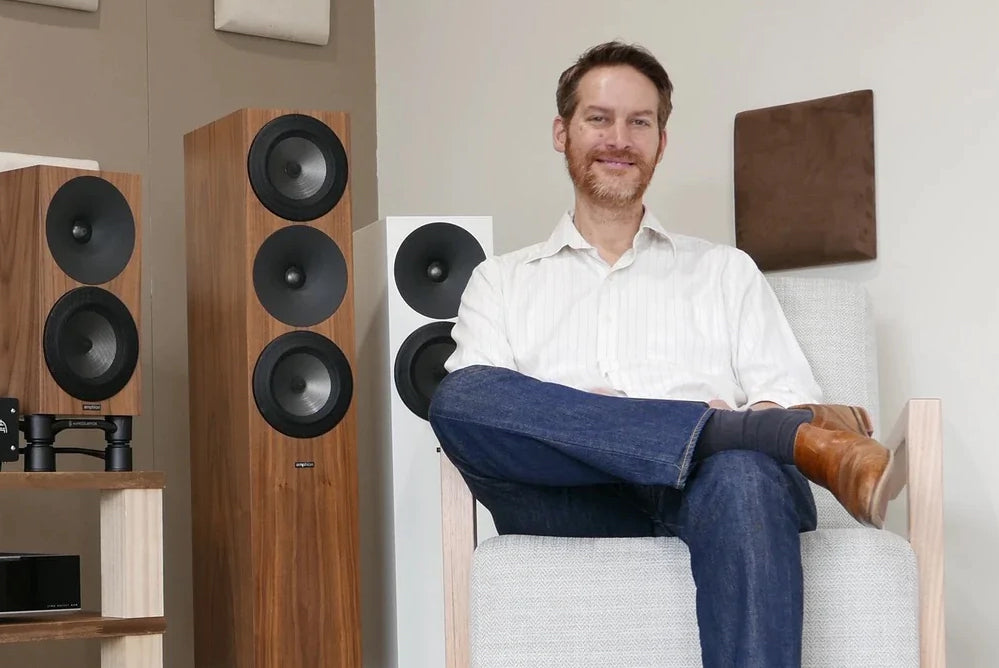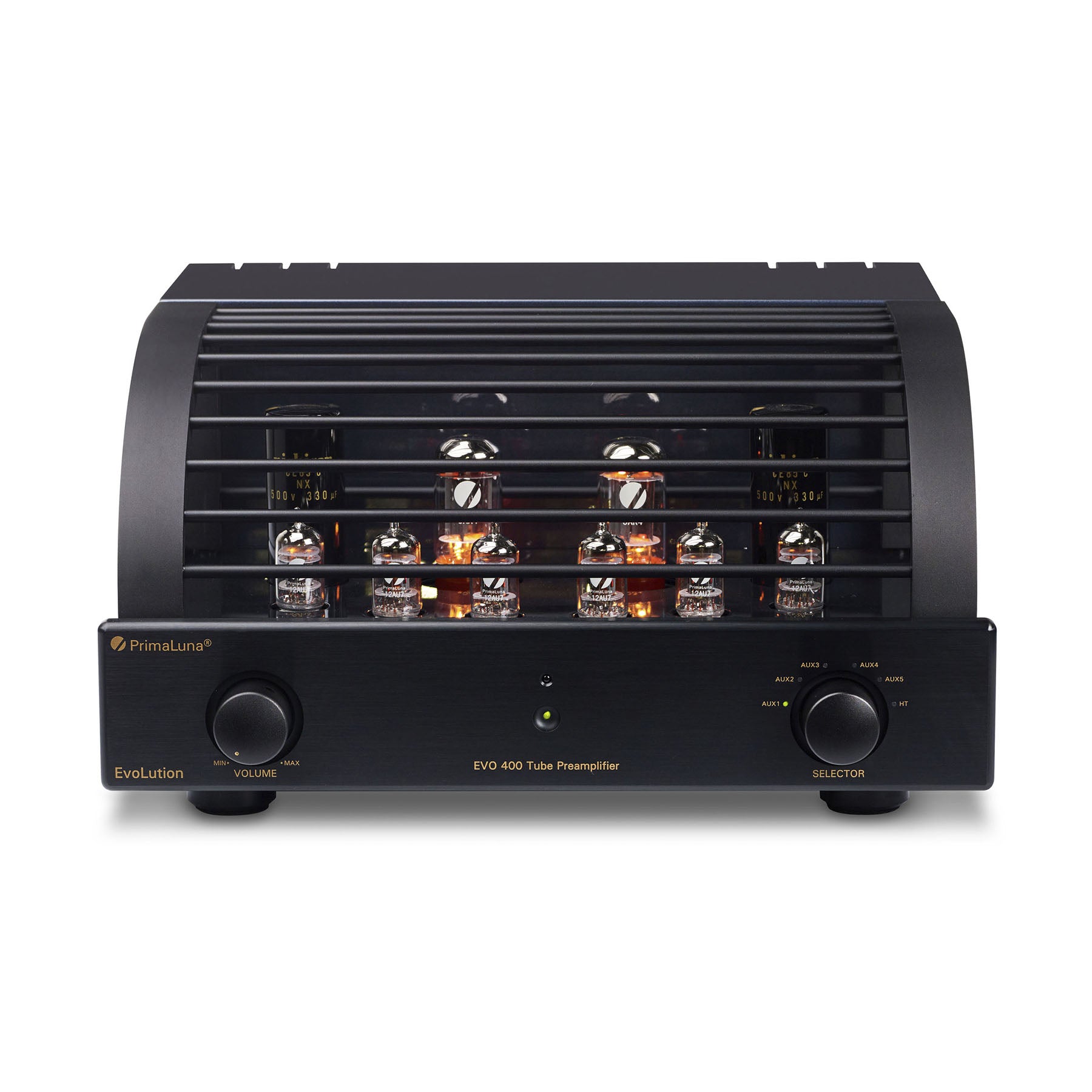

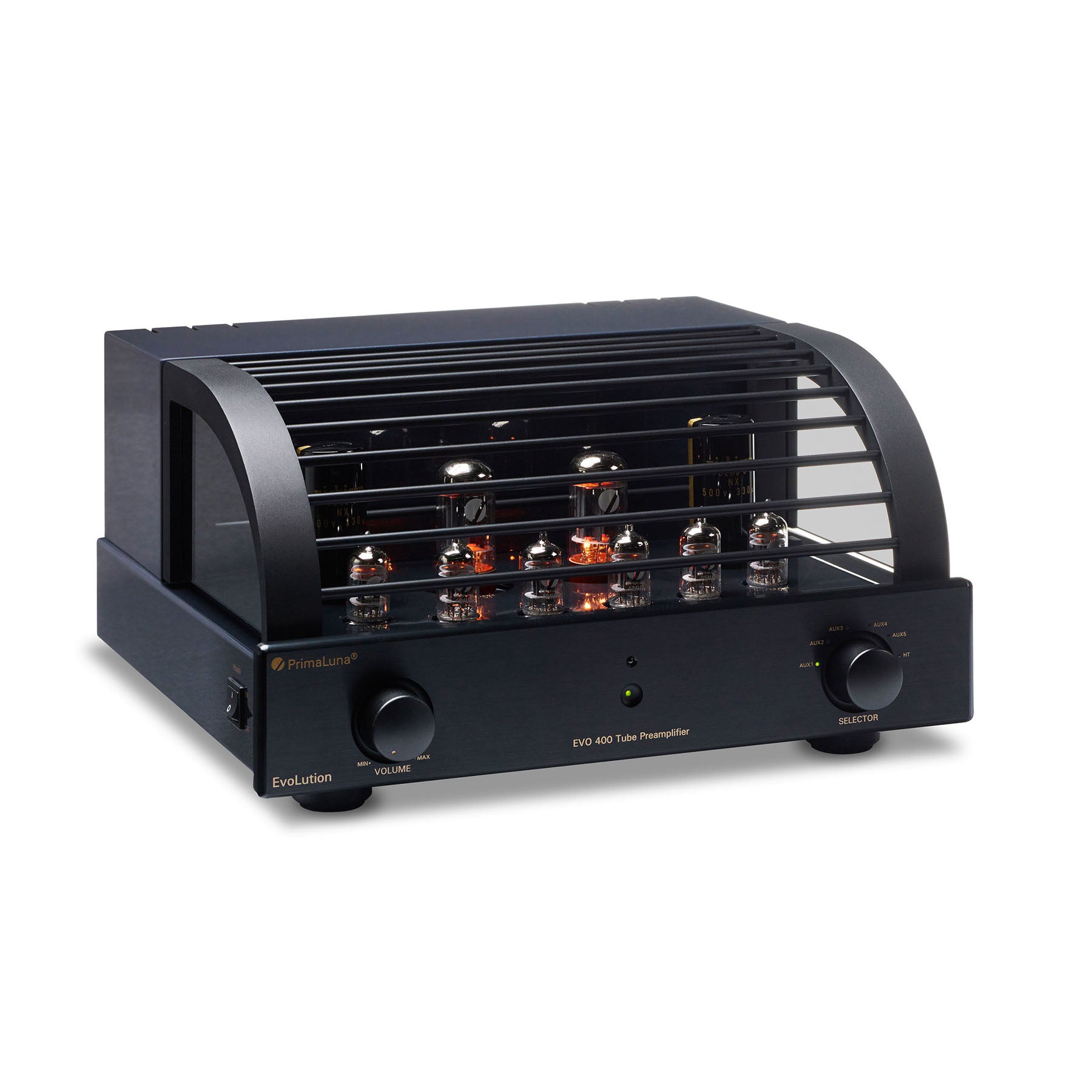
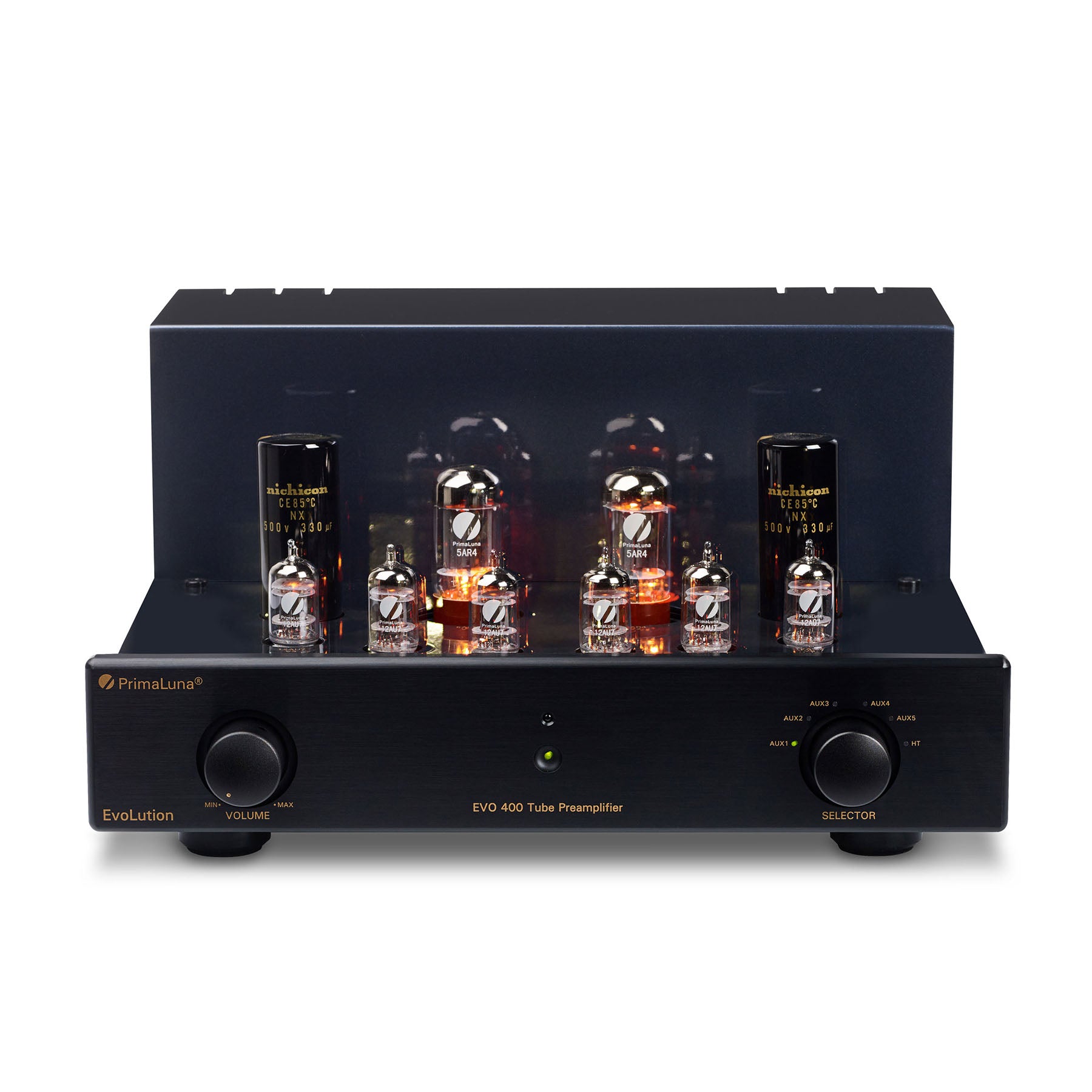
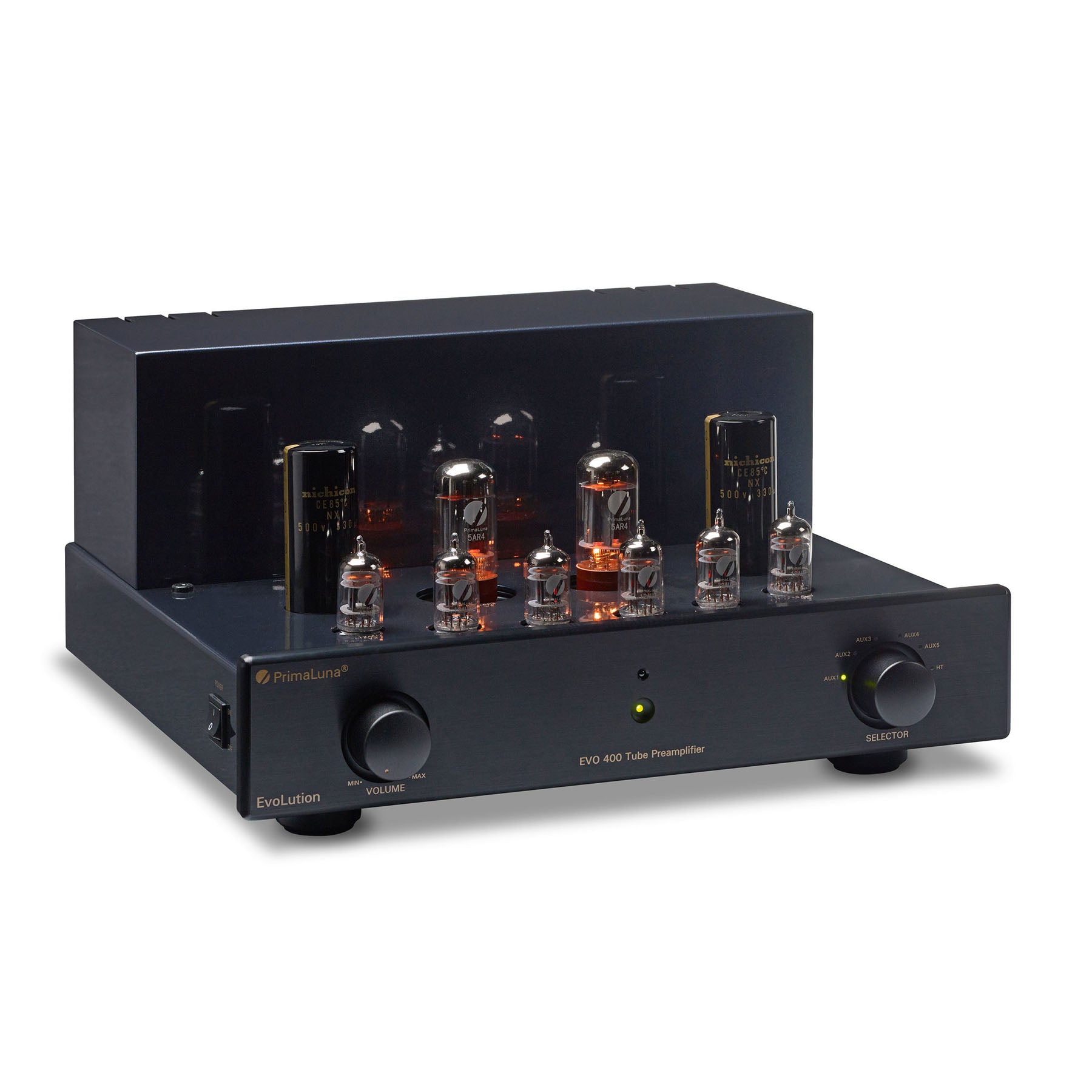
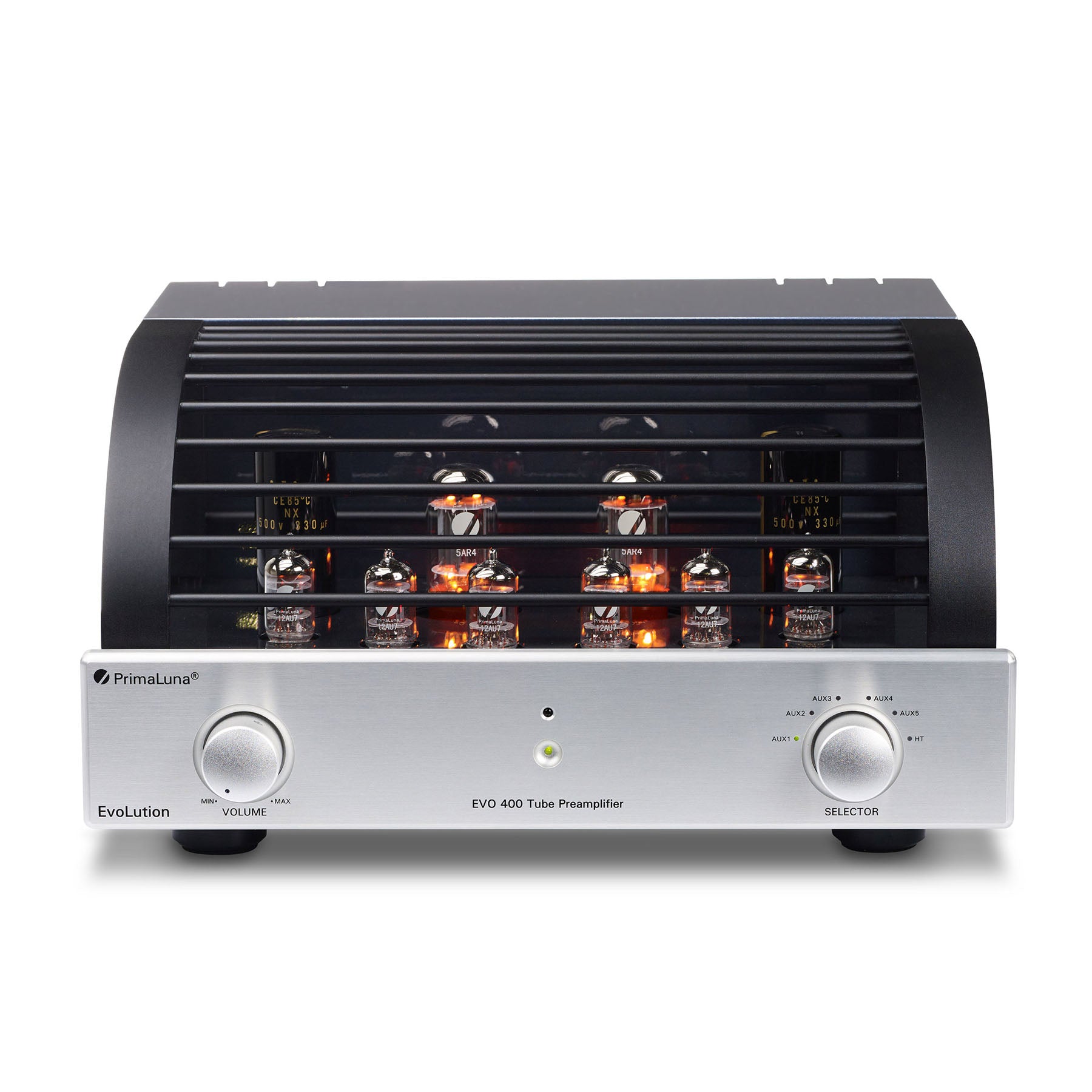

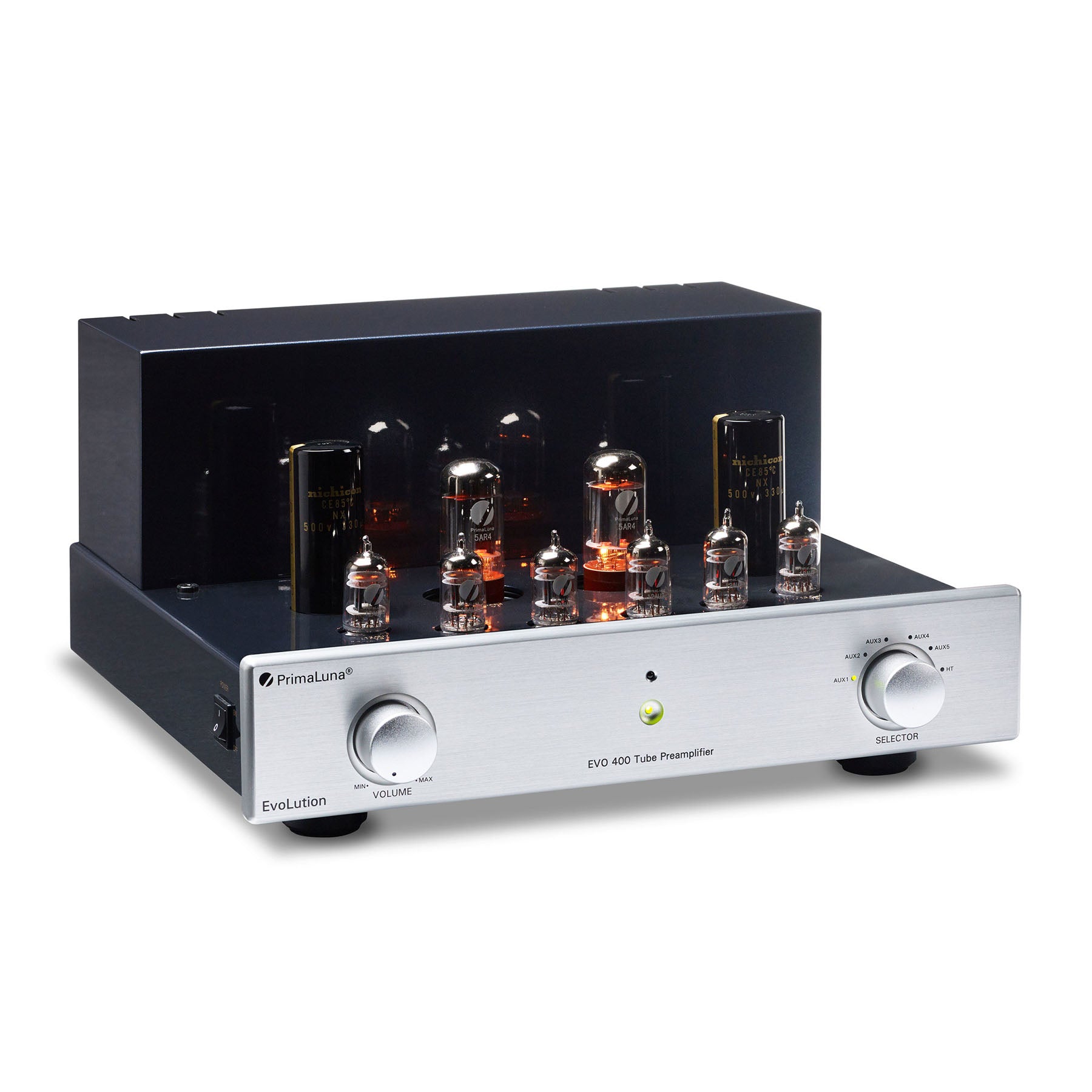
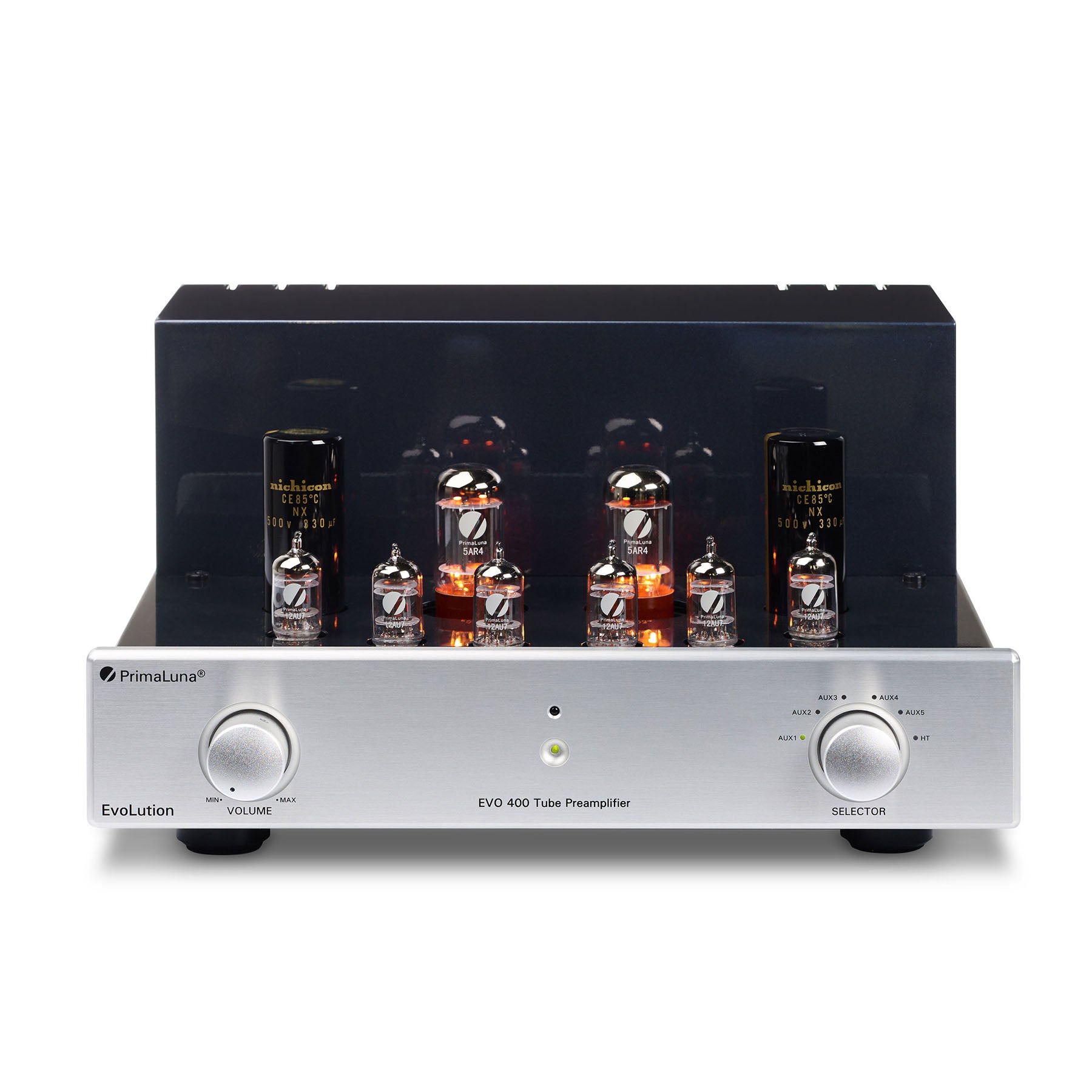
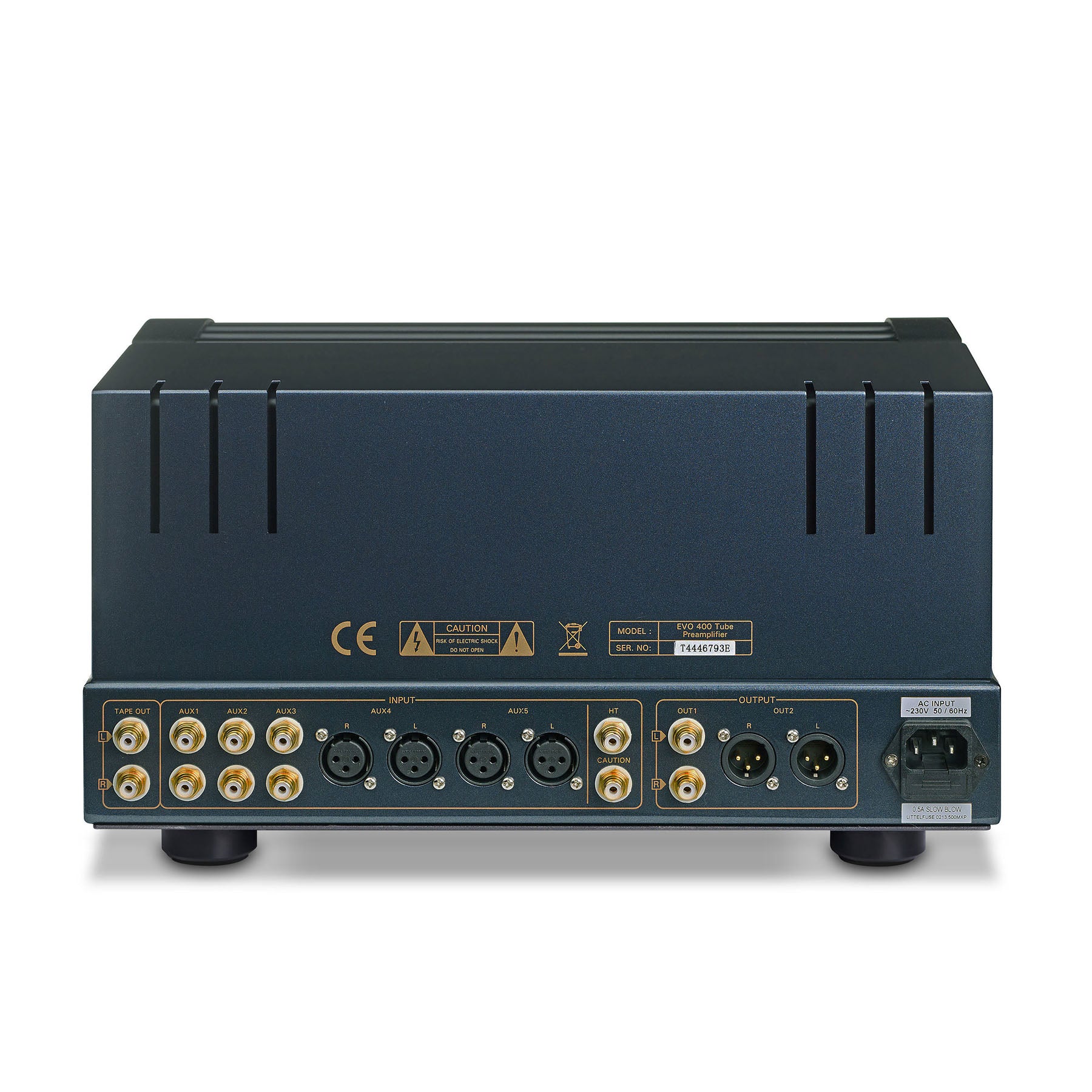
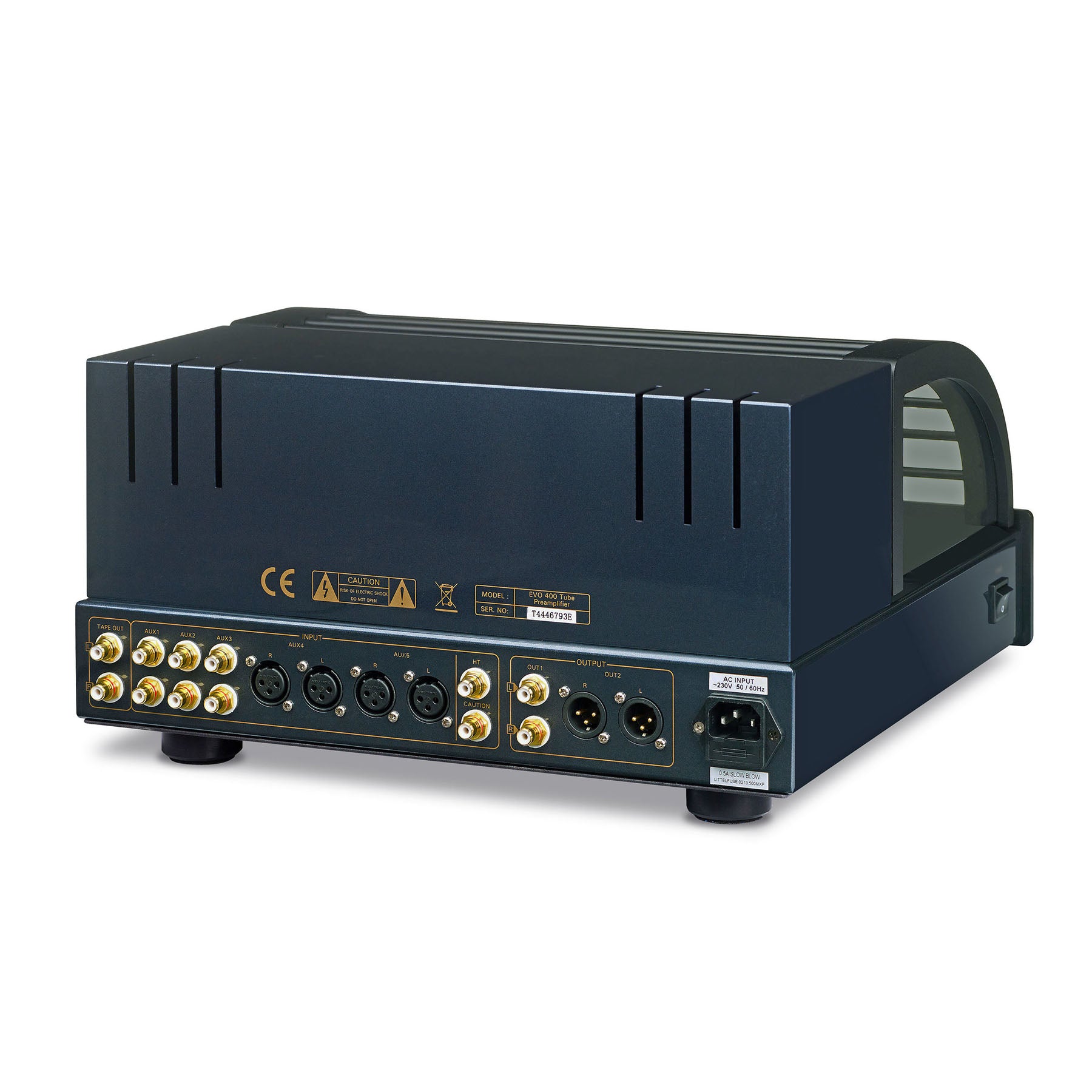
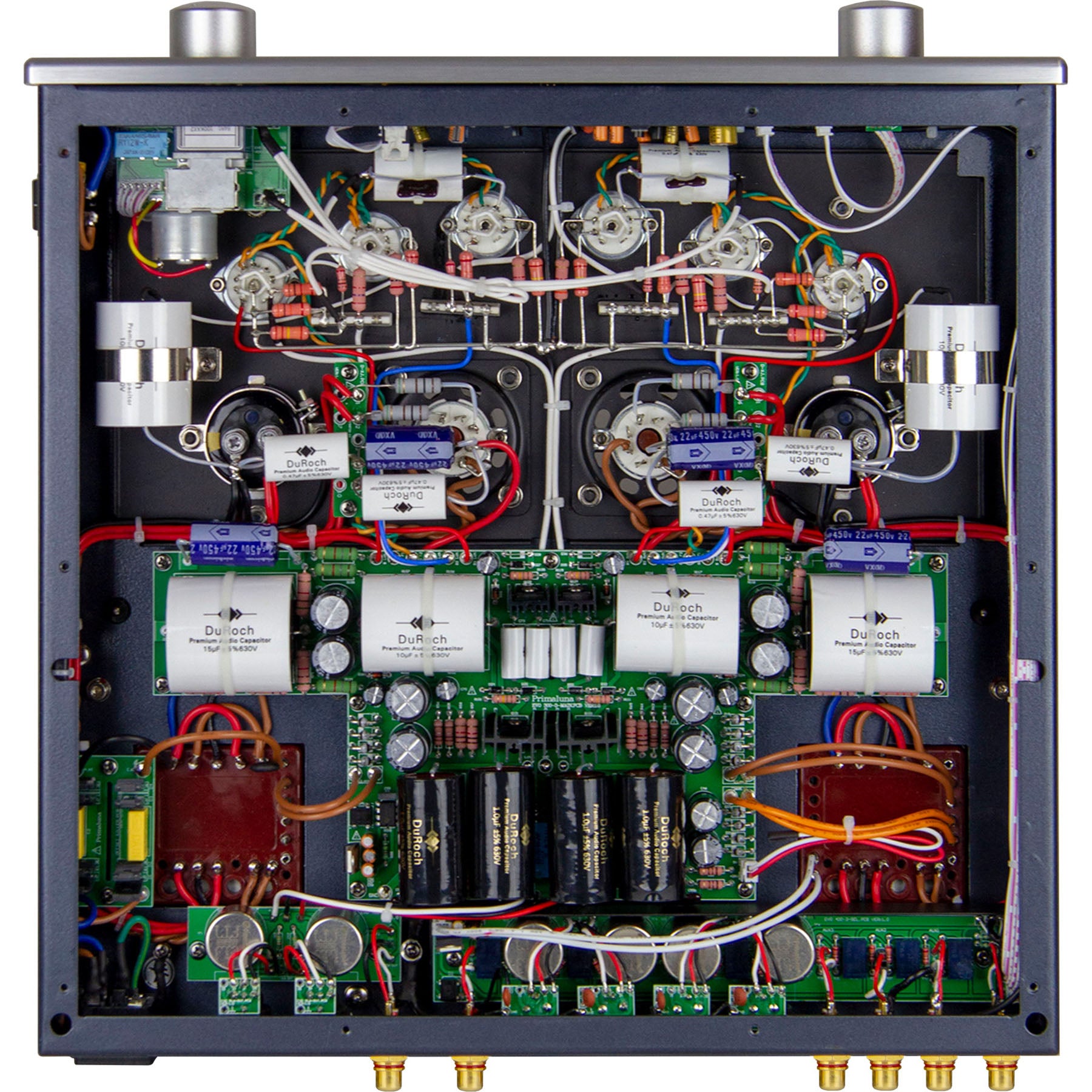
PrimaLuna Evo 400 Tube Preamplifier
PrimaLuna Evo 400 Tube Preamplifier
Black
22 Saint Kilda Road
22 Saint Kilda Road
Suite 2.02
St Kilda VIC 3182
Australia

PrimaLuna
-
Ac offset killer - a primaluna exclusive
-
Takman resistors
-
Dual toroidal power transformers
-
Tube rectified
-
Japanese alps blue velvet potentiometer
-
Superquiet line inputs
-
Point to point wiring
-
Dual-mono design
-
No internal dac / no internal phonostage
-
Smartgain design
-
Dialogue front-end circuitry
-
Perfectmatch

Evo 400
Tube Preamplifier

AC OFFSET KILLER - A PRIMALUNA EXCLUSIVE
AC Offset Killer is about goose bumps. The ones you get when music comes out of a background so quiet, you may say to yourself “Just how is this possible?” PrimaLuna custom-winds our own massive toroidal power transformers that are low in hum and EMI. But we wanted more. Our engineers designed the AC Offset Killer to lower transformer noise to a place no other manufacturer dreams of going, regardless of how bad your electricity is. The result? Sense of space. Texture. The resonance of an acoustic guitar or violin string that seems to trail on forever. The AC Offset Killer will amaze you.

TAKMAN RESISTORS
If you bought a lesser amplifier, you would pay hundreds to make this upgrade. Easy to identify through their pink color, these premium resistors from Japan are popular with those who rebuild and upgrade their gear. "Modders" love TAKMAN for their low noise, linearity, and musicality.

DUAL TOROIDAL POWER TRANSFORMERS
Power transformers generate two types of noise, magnetic and acoustic. That's why toroidal power transformers are used in the very best audio products. Compared to standard transformers, toroids radiate about 1/10 the magnetic field that pollutes music and obscures detail. Additionally, the absence of an air gap typically means toroids have an 8:1 reduction of acoustic noise. As transformers are the most expensive components in any audio product, manufacturers will even house cheaper C-core and EI-core transformers in an outboard power supply box with an umbilical cable rather than upgrade to an expensive toroid. The increased cost is significant, but PrimaLuna doesn’t cut corners. All PrimaLuna products use massive, potted toroidal transformers. PrimaLuna transformers are enclosed in a metal housing and then potted in a non-microphonic resin to further reduce noise and to protect the windings from moisture and deterioration forever. They are massive, resulting in a preamp weighing a substantial 53 pounds.

Tube rectified
In the world of preamps, experts agree that tube rectification is the gold standard. It’s quieter than solid state rectification, dropping the noise floor. And it offers the most natural, textured, and vibrant presentation because the circuit is now pure tube. But because it is expensive to implement, you’ll only find it in the top of the line models typically costing $10,000 or more. Finding a preamp using one rectifier tube is sweet. PrimaLuna goes even further using two 5AR4 rectifier tubes in a dual-mono design to present your music with a three-dimensionality that will give you goosebumps.

Japanese ALPS Blue Velvet Potentiometer
The best tube preamps use analogue volume controls. Not volume control chips. Look inside the most well-known brand of tube preamps and you will see a chip called a DS1666-10 Digital Resistor IC. At Primaluna, we understand the temptation to use this chip as they cost $4 each (half that in quantity!). The preamp will sound fine and be quiet, but true to “chips” it will add an electronic “sheen” to the sound. PrimaLuna prefers analogue. And we use the Gold Standard in motorized potentiometers: The iconic Alps Blue Velvet. Why? Because they track perfectly, stay quiet, and don’t sound like chips!
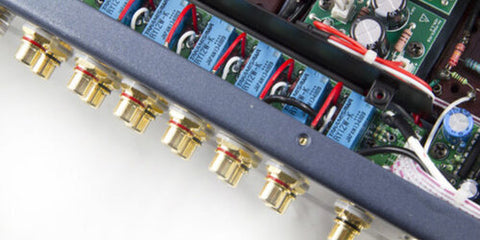
SuperQuiet Line Inputs
Input selector switches leak noise and signals from other sources, as they never turn off the other inputs completely. And, they deteriorate with age, requiring the use of cleaners. Many are mounted on the front panel requiring long runs of wires to the back panel inputs. These wires pick up stray noise from RF and EMI.
PrimaLuna has a better way. Instead of a switch, input selection is done using premium quality sealed relays mounted in the rear where you plug in your components. When an input is selected, that relay closes giving you the best connection possible. All the other relays are left open, so noise and signals from other sources can’t leak in. The signal path is now almost non-existent, so there are no wires to pick up noise.

POINT TO POINT WIRING
You spend a lot of money on interconnects. So why have the signal go right from the RCA jacks or speaker terminals into circuit boards with copper traces so thin you can hardly see them? What’s high-end about that?
PrimaLuna employs Point to Point Wiring on all products. EVO 300 and EVO 400 models even use Swiss-made silver-plated OFC wire. The entire signal path, including resistors and capacitors, is painstakingly hand wired with heavy-gauge cable by craftsman.
NO INTERNAL DAC / NO INTERNAL PHONOSTAGE
Never buy a preamplifier with an internal DAC. Why? Because digital changes, and history shows that preamplifiers with “old” digital become unwanted and have almost no resale value.
Built in phonostages are “throw in” and are rarely good quality because manufacturers assume 90% of buyers won’t use them. The external phonostage market is very competitive. You can get something much better for as little as $200, and buy one that actually meets your cartridges needs and YOUR budget.

Dual-Mono Design
Expensive and exotic preamps always use a dual-mono design to achieve a level of imaging not possible otherwise. Most manufacturers don’t employ dual-mono because of expense. It requires two power transformers, double regulation circuits, and in fact….everything is double. In effect, dual-mono means building two discrete and separate preamps into one box. It is so expensive to build, it’s a rarity even at the highest price points. All PrimaLuna preamps are dual-mono for the ultimate in stereo imaging and a sense of space that goes on forever.

DiaLogue FRONT-END CIRCUITRY
The DiaLogue Premium uses three 12AU7 tubes per channel. The result is even lower distortion and increased bandwidth over ProLogue. The change in dynamic range is stunning! Distortion levels in the first stage have dropped by a factor of five at low levels, and at least 20 at higher levels, above one volt. The four 12AU7’s on the outside are driver tubes. By using four instead of two, we can swing more voltage. The two tubes in the center are the input tubes, and that’s where you want to have fun later if you wish by experimenting with different tube brands.
Specifications
Inputs: Stereo RCA x 3, Stereo XLR x 2, Stereo RCA HT bypass
Outputs: Stereo RCA, Stereo XLR, Stereo RCA tape out
Gain: 10 dB
Frequency Response: 18Hz-38kHz +/- 1dB, 12Hz-75kHz +/- 3dB
THD: < 0.5% @ 2 V
S/N Ratio: 93 dB, 98 dB-A
Input Sensitivity: 650 mV
Input Impedance: 220 kΩ
Output Impedance: 256 Ω
Power Consumption: 61 W
Standard Tube Complement: 12AU7 x 6, 5AR4 x 2
Dimensions (WxHxD): 15.2" x 8.1" x 15.9"
Weight: 52.8 lb
Inputs: Stereo RCA x 3, Stereo XLR x 2, Stereo RCA HT bypass
Outputs: Stereo RCA, Stereo XLR, Stereo RCA tape out
Gain: 10 dB
Frequency Response: 18Hz-38kHz +/- 1dB, 12Hz-75kHz +/- 3dB
THD: < 0.5% @ 2 V
S/N Ratio: 93 dB, 98 dB-A
Input Sensitivity: 650 mV
Input Impedance: 220 kΩ
Output Impedance: 256 Ω
Power Consumption: 61 W
Standard Tube Complement: 12AU7 x 6, 5AR4 x 2
Dimensions (WxHxD): 15.2" x 8.1" x 15.9"
Weight: 52.8 lb



